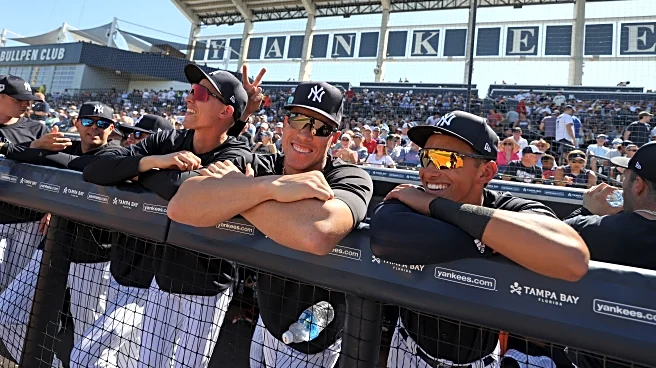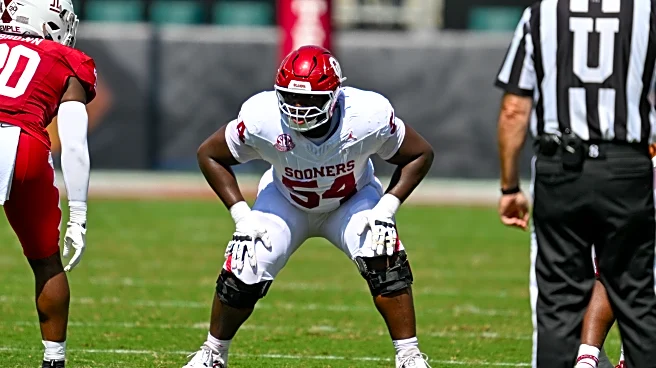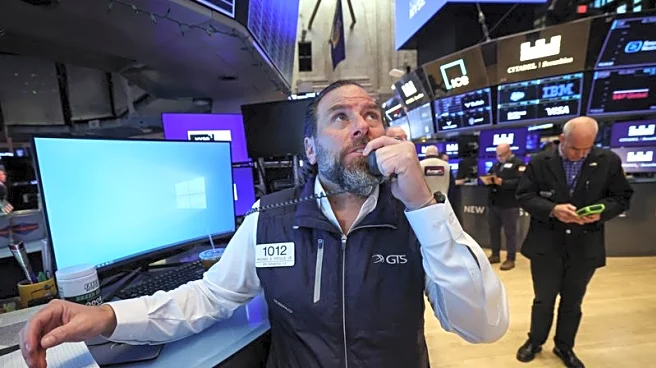What's Happening?
Mauricio Pochettino, the U.S. soccer coach, has announced his decision to bring only the final 26-man roster to the pre-World Cup training camp. This approach is intended to avoid the emotional impact of cutting players shortly before the tournament.
Historically, U.S. coaches have invited larger groups to training camps and then reduced the roster, which has sometimes led to controversy. Pochettino's decision is aimed at maintaining team morale and cohesion, as he believes it is less cruel to finalize the roster from the start. The U.S. Soccer Federation plans for players to report to its new complex in Fayetteville, Georgia, for training beginning May 27, with two friendlies scheduled before the World Cup opener on June 12 in Inglewood, California.
Why It's Important?
Pochettino's decision to limit the training camp roster to 26 players is significant as it reflects a shift in team management strategy, prioritizing player welfare and team chemistry. This approach could influence how other national teams prepare for major tournaments, potentially reducing the psychological stress on players. The decision also highlights the importance of team dynamics and the role of leadership in fostering a supportive environment. By focusing on the human aspect of team selection, Pochettino aims to build a cohesive unit that can perform effectively on home soil during the World Cup.
What's Next?
The U.S. team will continue preparations with upcoming friendlies against Paraguay and Uruguay, providing opportunities for players to demonstrate their readiness for the World Cup. Pochettino will finalize his roster after these matches, with only a pair of March friendlies remaining before the World Cup. The team's performance in these games will be crucial in determining the final squad, as players compete for a place in the tournament. The focus will be on building team chemistry and ensuring that the selected players are fully prepared for the challenges ahead.
Beyond the Headlines
Pochettino's approach to team selection may have broader implications for the culture of U.S. soccer, emphasizing the importance of mental health and player well-being. This could lead to a shift in how teams are managed, with greater attention to the psychological aspects of sports. Additionally, the decision to limit the roster size may influence other sports organizations to reconsider their selection processes, potentially leading to more humane and supportive environments for athletes.
















